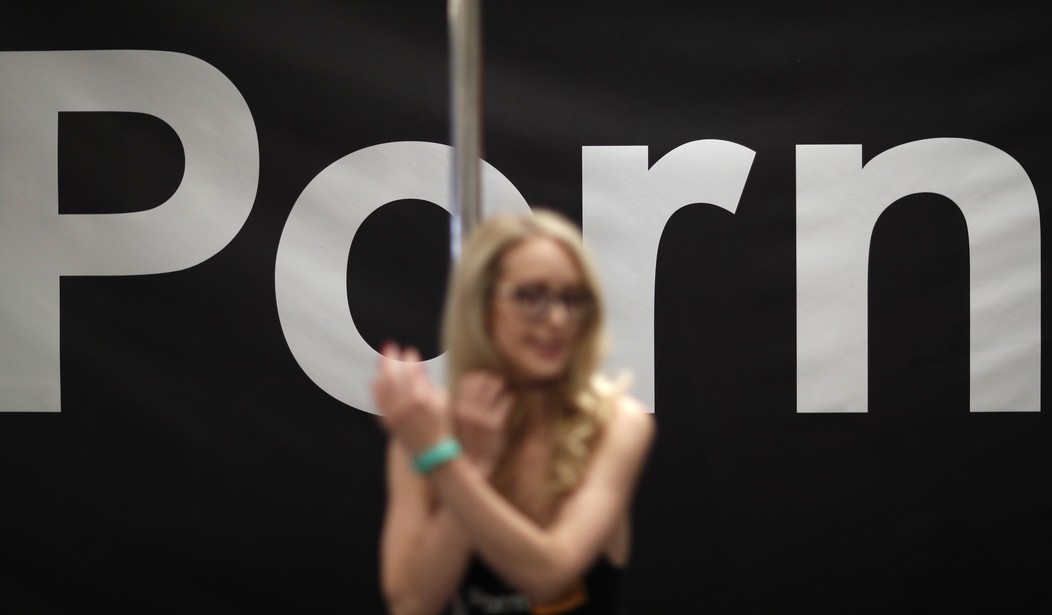Pornography is a part of life. Smut has existed as long as the written word and art have existed. It’s not a modern Internet invention. And children, especially teenagers coming of age, are naturally curious about it and seek it out.
Just about every adult, especially male, has some story of accessing adult-themed and sexually-explicit material as a child, whether by rummaging through an older brother’s collection or stumbling upon your father’s secret stash. It’s almost a rite of passage for most people.
It is common sense to limit access to pornography to young children. It’s also common sense to accept that older teenagers will get exposed to it, one way or another. However, the methods used to limit access to pornography are very important in a free society. Using a heavy-handed approach in a sense is reminiscent of the Afghan Taliban’s “Ministry for the Propagation of Virtue and the Prevention of Vice.”
The past decade or so has seen a big growth in the market for parental control software. There is a lot of software that is free and good enough. If your family uses the Apple ecosystem, it’s straightforward to configure and connect family iCloud accounts and turn on pre-configured ScreenTime limits on everything from explicit lyrics to adult websites to the number of hours a child can spend on a device. There are similar options available for Android, Windows, and Amazon Kindle devices. Besides the “free and good enough” parental controls, there are numerous third-party vendors who build excellent parental control software.
Even your home wireless router likely has parental controls built in to limit access to adult websites and to block your children’s Wi-Fi connection when they’re supposed to be in bed.
In this backdrop of plentiful market choices, the push for age verification laws is misguided and, frankly, dumb. What do these age verifications laws look like? Take a look at Texas’ law (archived link), which is being litigated in the federal judiciary, as an example:
Supreme Court declines to block Texas age-verification law on porn websites like Pornhub
A Texas law requiring pornographic websites to verify the age of their users will remain after the Supreme Court declined an emergency appeal.
Here’s what the court said about House Bill 1181 and what happens next.
What is HB 1181?
HB 1181 passed in 2023, requiring porn sites to verify the age of users with a government-issued ID or reasonable alternative. The bill was written by Plano Republican state Rep. Matt Shaheen. The bill prevents minors from accessing sites and comes with a $10,000-a-day fine for violators and $250,000 “if a child is exposed to pornographic content due to not properly verifying a user’s age.”
Public policy always comes with tradeoffs, and the well-intentioned effort to limit children’s access to pornography (or social media in Tennessee) has the potential to backfire in an unexpected area: Second Amendment-themed and firearms-related websites.
Just go to any firearms website, say, Ruger.com, or PalmettoStateArmory.com, and you are splashed with a screen that asks you to confirm that you are at least 18 years old. There is no age verification process that entails uploading a government-issued ID to simply to surf what’s out there. What if California or New York pull a “monkey see monkey do” stunt and pass similar legislation for firearms websites?
In some ways, this is nothing new. California has already tried banning “marketing guns to minors” with its stupid AB 2571 law that resulted in two lawsuits, namely, Safari Club Int’l v. Bonta, and Junior Sports Magazines Inc. v. Bonta. But bad can get worse. California could still follow and extend Texas’ example and do the same with Second Amendment-themed and firearms-related websites.
This will result in a big drop in internet traffic to those websites and will chill speech, period. Although anti-gun prudes and puritans will disagree, there’s absolutely nothing wrong with a child accessing firearms websites to learn what’s out there, or watching videos of GunTubers to learn safety, or reading Second Amendment-related news and columns.
Don’t be surprised if the age-verification laws get cloned and come back to bite us in the buttstock.








Join the conversation as a VIP Member